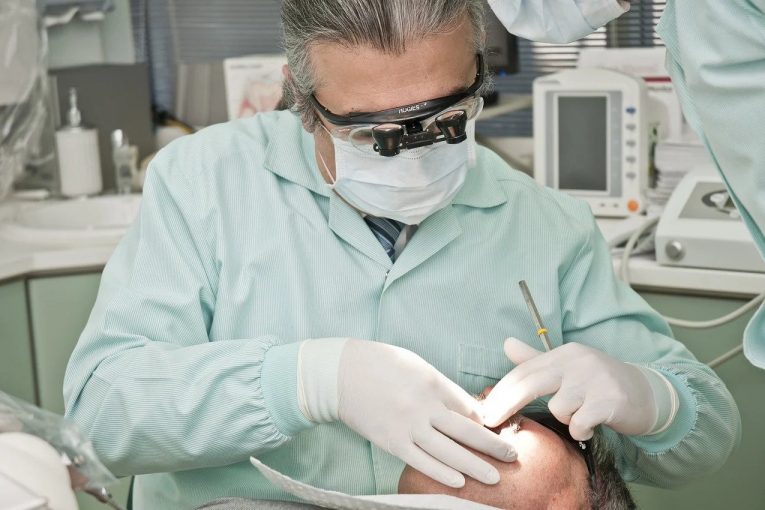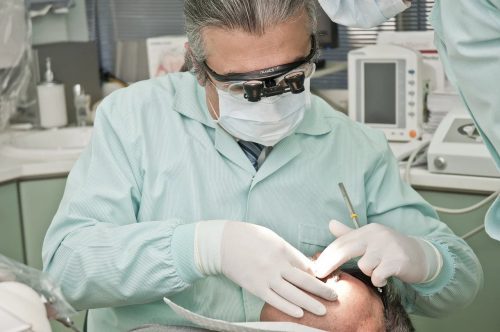

By Kritika Singh
BERKELEY — $10,000—this is the amount of money that Daniela Medina had to pay to repair years of inadequate dental treatment that she received while incarcerated.
For Medina, a UC Berkeley alumna and the Assistant Director of the Berkeley Underground Scholars (a program supporting incarcerated and formerly incarcerated individuals in their pursuits of higher education), the costs of dental treatment after her release served as a reminder of the trauma she experienced as a dental patient in county jail and at Valley State Prison in Chowchilla.
“My first experience there was one of my friends said she had just came from the dentist and they told her they had to pull one tooth, and they pulled the wrong one. So I guess they pulled the one next to the one that they were supposed to pull…That was my first experience there hearing about the dental, so I wasn’t happy to be seeing them [the dentists].”
Unfortunately, Medina and her friend’s experiences of dental negligence are shared by currently and formerly incarcerated folks across the country. Perhaps the most widely cited instance of negligence is the inclination of dentists in prisons and jails to pull teeth rather than repair them with more expensive, reparative procedures.
Medina too recalls experiencing this when she found herself in need of a root canal. “There’s not even an option to get a root canal…They make it very clear that you can only get your tooth pulled.”
While the Federal Bureau of Prisons does not at this time explicitly prohibit root canals, the treatment is classified as “non-urgent dental care,” and may therefore take up to a year to be completed. Incarcerated folks are therefore often forced to pick their poison—wait months for the root canal and risk further pain, or opt for the tooth to be pulled immediately.
Even those who are willing to wait for treatment are often prevented from doing so, as the California Department of Corrections and Rehabilitation (CDCR) restricts those with a plaque index score above 20% to only emergency, urgent, interceptive, or special needs care.
“I got all my teeth pulled out except for like 5 or something,” said Carlin, another formerly-incarcerated UC Berkeley student who says he had been in and out of prison since the late 1950s. He further explained the implications of this, sharing that “It shapes your face and stuff, how you speak. Now I have a little lisp because I don’t have all my teeth.”
Carlin added that “Things accumulate in prison. You lose one tooth, after a while, you just don’t care. It’s like, oh jeez, why would I brush my teeth and floss my teeth if I only got 6 teeth in my mouth, you know?”
The sense of hopelessness and discouragement described by Carlin is exacerbated by the fact that for those individuals who wish to maintain a dental hygiene regimen, doing so is often infeasible.
Medina described how “They’re like, ‘you have to floss every day,’ [but] we don’t have dental floss. So, there’s that, you know.” In fact, many prison systems do not allow for the incarcerated to have regular dental floss due to fears that it can be used as a weapon. In California, the state instead approves Floss Loops, which are designed to break easily and prevent the floss from being used for other purposes.
Carlin expressed a similar experience, sharing that “They [prisons] don’t provide you with a toothbrush or toothpaste, you have to buy it in the commissary. So, it might be an item that some people just forgo.” While Carlin was fortunate enough to have a job in the prison that afforded him the ability to purchase toothpaste, he explained that other incarcerated folks may not be able to because they are only getting paid a couple of cents per hour. In California, the minimum wage for prison jobs is a mere 8 cents per hour.
Prior to 2020, the meager payment that incarcerated individuals received for their labor also made it extremely difficult to afford the copays of dental treatment. Fortunately, this burden was lifted with the passage of Assembly Bill 45, which prohibits all medical copays at California jails and prisons.
Yet even without this financial burden, formerly incarcerated folks continue to feel the effects of their dental treatment (or lack thereof) long after their release. Some commonly shared sentiments amongst the formerly incarcerated include the shame and stigma associated with explaining one’s incarceration to a dentist, as well as feelings of anxiety stemming from mistreatment by dentists in the past.
Describing a prior experience in which a dentist at the prison had cut her face with the suction tool, Medina reflected on how “At the dentist, when somebody’s dealing with your mouth and sharp objects and things, you’re already nervous and you want to feel at ease with somebody doing any type of procedure in your mouth. [The dentists in prisons are] very rough and just like very careless.”
She added that upon her release, she was shocked to have a dental experience in which the dentists were gentle and explained their procedures thoroughly to her. Yet Medina also wishes that she had been aware of any organizations or individuals that specialized in connecting formerly incarcerated individuals to dental care.
In reference to dental treatment for the formerly incarcerated, Medina explained that “I never even heard that people were helping with this. It was like a major setback for me coming home. It was so stressful, for me like, going through this process. Just because I was like ‘Oh my God, this just never ends,’ you know? Like even when you’re home it’s just like ongoing, it’s one thing after the other, and this was just one other thing that I was dealing with that still had to do with my incarceration.”



Moral of the story:
Before you commit a major crime you might want to check on prison dental services.
Or get a dental exam and all needed dental work before committing a major crime.
I think the moral of the story that people are willing to accept human rights abuses for people they don’t like and shrug it off as they got what they deserved.
How about the human rights abuses of the people who were victimized by many of these convicts and in turn are we really supposed to be upset about their prison dental services?
The courts have ruled it is an 8th amendment violation to deprive incarcerated people with adequate health care – do you disagree with the court here?
But moreover, given that this is a story of someone who has turned their life around – why are you focusing on this point? And why do you wish to make it harder for people to do that? I don’t get your perspective here. If you are worried about the people who have been victimized, why make it more likely that someone who gets out is behind the eight ball and therefore victimizes someone else?
And better prison dental services is going to going to help that problem?
The lack of care ended up costing them $10,000 after leaving prison for one thing – did you actually read this story? The reporter did a really nice job.
I thought you wanted people to turn their life around, why are you trying to make it harder with unnecessary cruelty?
Answer my first question on whether you agree with the court the 8th amendment violation
I read the story. So are you saying if they get dental services after prison they might have to victimize others in order to get their teeth fixed? Really, is that the point you’re trying to make?
I commend the person who turned their life around but this story is mostly about prison dental services.
Is someone in poor health, financial hardship less likely to turn their life around? Yes.
Perhaps to “tooth will out”…
Pretty much everyone pays for Dental Insurance, and/or the direct costs for dental care… many have employers pay at least a portion of the costs, but they are ‘earning it’, and it is considered part of their “total comp”…
So, a prisoner, who has broken the social contract, pays no insurance, does no productive work, is entitled to unlimited dental care? At the expense of those of us who have to pay directly, or via insurance, or both?
Some stretch of “entitlement for incarcerated persons” (particularly under the 8th amendment, ‘cruel and unusual punishment’… if full dental care is an obvious constitutional right, why not reparations for individuals and employers who have foolishly been paying for those services/insurance? Those who have not committed a crime serious enough to be incarcerated… particularly under the 14th amendment… ‘equal protection’?
Providing dental care for incarcerated folk, if they request and pay for it, would be consistent with the 14th and 8th amendment… do we want parents to be charged for violation of the 8th amendment for not attending to the dental care of their children, which could affect their entire life?
Something smells rotten, in the dental ‘mark’, and it is not halitosis…
I can understand why society would ‘contract’ to provide dental care for all if it is clear ‘at whose expense’, and society decides to fund that… if that is done, it should extend to those incarcerated… equally… seems like this article wants to make incarcerated folk a “special/preferred” class as to “entitled” dental care… I’m “not there”… not when regular folk are paying for themselves, doing without, and expected to pay in addition for others, who aren’t. Doesn’t smell right.
True story… does that also apply to the ‘homeless’ (know of an “unsheltered” guy who died at a relatively young age due to heart complications directly related to dental health… but although he was a veteran, not covered for dental care… too young to be eligible for other coverage… but his life was ‘cheaper’ than a convicted felon? I think, NOT!…
He was denied his chance “to turn his life around”… but was not convicted as a criminal…